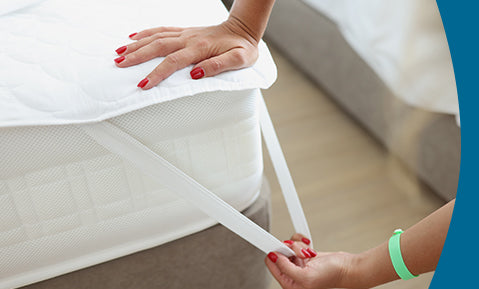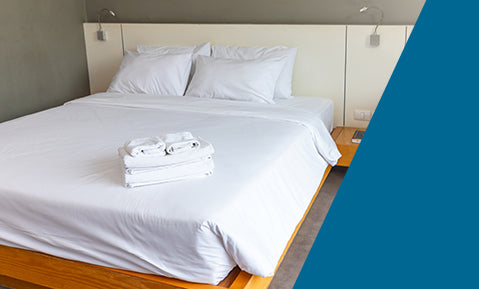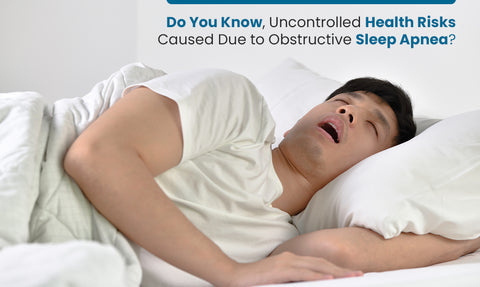
Somniloquy, sleep talking, is a sleep disorder that triggers talk while the person is sleeping. The talk is often gibberish and forgotten by the time the person wakes up.
According to studies, 66.8 percent of people have experienced episodes of somniloquy, making it one of the most common disruptive sleep-related disorders.
While the condition is harmless, you can learn more about sleep talking from this post.
Causes of Sleep Talking
Sleep talking can occur at any stage of sleep. Although harmness, it may insinuate some other underlying medical condition.
Causes of sleep talking include:
- Stress
- Anxiety
- Depression
- Sleep deprivation
- Hypersomnia
- Drug or alcohol abuse
- Medications
- High fever
- Obstructive sleep apnea
- REM sleep behavior disorder
In rare cases, sleep talking may accompany serious medical conditions, such as night time seizures or psychiatric disorders.
Although environmental factors are mostly responsible for triggering sleep talking, it can also be a result of genetics.
Symptoms of sleep talking
While sleep talking mostly occurs in later stages of the sleep cycle, it may appear in early stages as well. Here’s how sleep talking generally differs on the basis of sleep stage:
- Stage 1 and 2: the speech is usually easier to understand in early stages of sleep. Sometimes the entire conversations are comprehensible.
- Stage 3 and 4: the sleep is more gibberish but the talk may last longer.
According to a linguistic study of people with somniloquy, half of the recorded sleep talk was gibberish or incomprehensible. The other half of the recording was comprehensible and followed typical conversation styles of exchanging information.
On the basis of frequency, your doctor may categorize your sleep talking as:
- Mild: defined as less than 1 episode per week.
- Moderate: defined as 1 case per week. The talk may somewhat disturb other people in the room.
- Severe: defined as more than 1 case per week. The talk will interfere with the sleep of other people in the room.
Apart from sleep talking, some people may experience:
- Sleepwalking (somnambulism)
- Night terrors
- Seizures
- Confusion
Sleep talking is generally a short-lived problem, as it resolves on making healthy lifestyle choices and avoiding stress. However, some people may suffer from chronic sleep talking, which can last for a very long time.
Treatment for sleep talking

Rarely requiring any treatment, sleep talking generally disappears upon making healthy lifestyle choices, which include the following:
Avoid stress
General stress levels are currently very high, especially as a result of qurentines and social distancing guidelines in many states.
Stress and anxiety can cause sleep related problems.
Although it’s generally recommended that you should minimize stress in your life, this isn’t possible in many cases. So you can practice relaxation techniques to calm your nerves.
Here are a few relaxation techniques that you may find helpful:
4-7-8 breathing technique
Inhale for 4 seconds, hold your breath for the next 7 seconds, and exhale out for the next 8 seconds.
When you breathe in a controlled manner, your nervous system calms down and you go into a deep state of relaxation.
Grounding
Generally used for relieving symptoms of anxiety, grounding requires you to use your senses to make your mind realize that there is no present danger to you.
After taking a few deep breaths, you need to look at a few objects one at a time. Simply take in every minute detail of that object. Then you touch a few different items and feel their texture. Then you proceed with the other senses, like hearing sounds, or tasting different things.
When your mind realizes that there’s no immediate threat to you, your anxiety disappears.
Mindfulness
This technique takes a long time to master. Being mindful is being present. It means to not ruminate on the past or plan for the future.
You simply need to stay in the present.
To practice mindfulness, simply sit or lay down in a relaxed position and focus on your breath. When your mind gets distracted, note the thought and bring back your focus to your breath.
You’ll eventually learn to ignore your thoughts.
Here’s a 10 minute guided mindfulness meditation session.
Practice good sleep hygiene
Good sleep hygiene paves the way for better sleep. Because our body relies on a regular sleep schedule and a relaxed state to fall asleep, following good sleep hygiene is essential.
Symptoms of poor sleep hygiene may include:
- Excessive daytime sleepiness
- Trouble in falling asleep
- Waking up regularly at night
- Depression and anxiety
- Heightened emotions
Here are a few tips that you can employ to practice good sleep hygiene:
- Create a consistent sleep schedule: according to the CDC, we need 7-9 hours of sleep daily. So set your sleep and wake time according to this recommendation.
- Practice relaxation techniques: you can relax your body with the aforementioned relaxation techniques.
- Dim the lights: dark environments induce sleep.
- Create the ideal sleep environment: use comfortable pillows and mattresses, and set a low temperature for the room.
- Journal: use a journal to jot down any anxiety provoking thoughts.
- Avoid devices: devices emit blue light which hinders the release of melatonin. Avoid electronic devices close to bedtime.
Exercise regularly
Exercise releases endorphins, which lower the symptoms of depression. And it is a great way to build self-discipline and maintain a healthy weight.
At least 30 minutes of exercise per day has significant health benefits.
Here are a few at home workout routines, with which you can get started:
Avoid stimulants such as alcohol and caffeine
Stimulants are substances that impact the central nervous system and increase our alertness. In contrast to sedatives and hypnotics, stimulants wake us up.
So you should avoid any kind of stimulants before heading to bed. Especially avoid caffeine and alcohol close to your sleep time.
Keep a sleep journal

A sleep journal generally contains the following information:
- Wake-up time
- Sleep time
- Amount of caffeinated drinks consumed
- Current medications
- Exercise schedule
As an important tool for evaluation of quantity and quality of sleep, doctors often prescribe sleep diaries to people with sleep disorders.
Tips for your partner
Here are some tips to make your relationship work despite the problems caused by sleep talking:
- Sleep in a different room than your partner
- Install a white noise machine that drowns out the sound of your talk
- Get some earplugs for your partner
- Recommend your partner some good podcasts to hear to when going to sleep
Sleep talk recorder app
Here are a few sleep talk recorder apps that you may find helpful:
- Dream talk recorder (iPhone)
- Sleep talk recorder (iPhone)
- SnoreLab: Record your snoring (android)
- Relax melodies (android)
These sleep talk recorder apps have in-app purchases, though the essential features are available for free.
Conclusion
Sleep talking isn’t a serious disorder, but may signify other mental or physical health issues. If you experience moderate to severe somniloquy, then consult your doctor and get a diagnosis. And use the tips in this article to improve your quality of life.
FAQs
Q. Can you wake up a sleep talker?
As the episode of sleep talking is usually ephemeral, you don’t have to wake up a sleep talker. But in rare instances, it may be better to wake up the person if their talk is prolonged.
If you think that the person is experiencing night terror, then don’t wake them up. Instead, wait for the episode to pass completely. People experiencing night terror can potentially hit you if you wake them up.
Q. How do you know if you talk in your sleep?
A. It can be tricky to find if you talk in your sleep. But you can rely on sleep recorder apps to find if you talk in your sleep.
Q. Is sleep talking a sign of stress?
Stress is one of the causes of sleep talk. However, you can make healthy lifestyle choices and decrease stress in your life. Further, relaxation techniques can help calm your nerves if you feel stressed or anxious.
Q. Do sleep talkers tell the truth?
When a person is sleep talking, they make associations between different ideas. So it isn’t essential that they may be telling the truth. And in later stages of sleep, a sleep talker usually utters complete gibberish.
And sleep talkers don’t mean what they say. So you can’t actually take the word of a person who’s sleep talking.
Q. Can sleep talking be cured?
Most cases of sleep talk are mild and disappear upon making healthy lifestyle choices. However, there’s no cure for severe sleep talk. You should consult a sleep specialist to find a treatment option.
Q. Is sleep talking similar to sleep paralysis?
No. Sleep paralysis creates an inability to speak or move despite the person being conscious. This usually happens between the stages of wakefulness and sleep.












